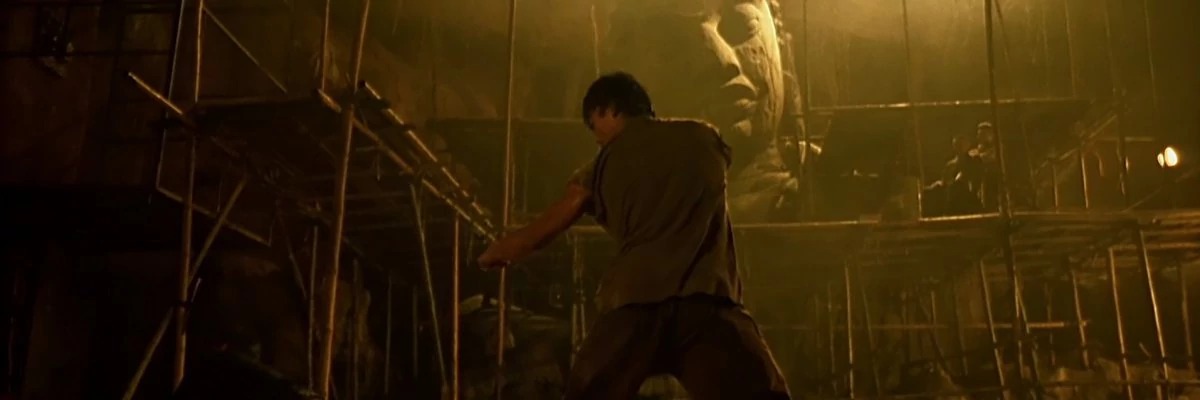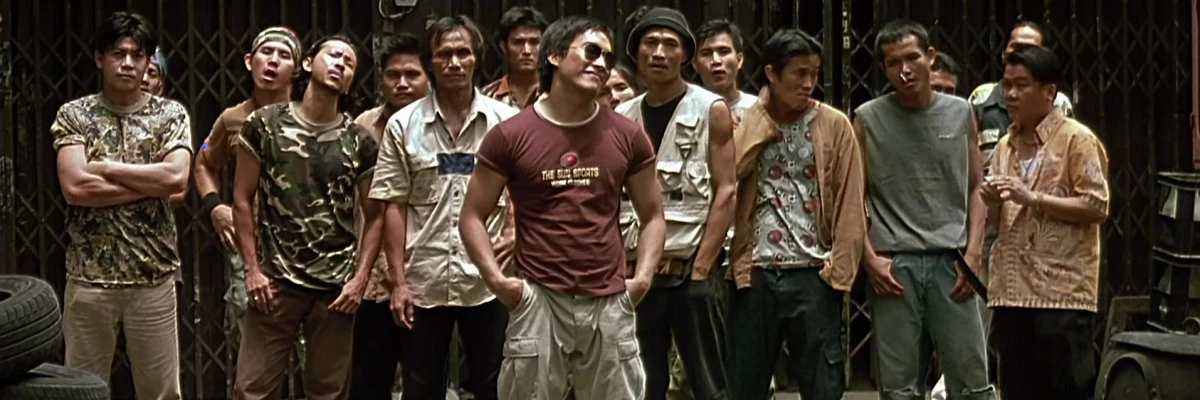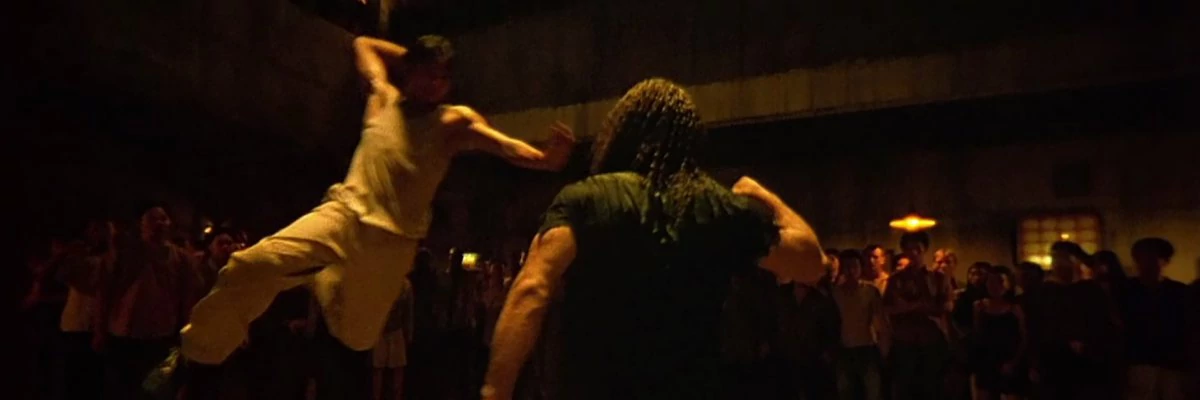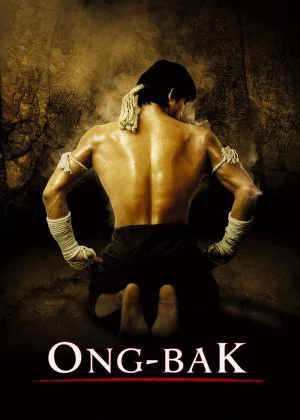Ong-Bak: Muay Thai Warrior
Martial arts cinema has always been a genre dominated by Hong Kong. Few nations have come close to its quality and breadth of output, but for a short while Thai cinema was right up there, competing for the crown. Director Prachya Pinkaew and action star Tony Jaa made this possible when they combined forces to make Ong-Bak: Muay Thai Warrior. A film with no other goal than to show off the cinematic potential of Muay Thai boxing to the world. I absolutely loved the film when I first watched it, but I wondered if time had been kind to its once so impressive stunts. There was only one way to find out, so I sat down to gave Pinkaew's first another run.

In the early 00s, many Asian nations were scrambling to benefit from the renewed international interest in Asian cinema. Several Thai directors had already enjoyed mild success overseas, but it wasn't until Pinkaew and Jaa made Ong-Bak that Thai cinema finally found its unique niche. It would kick-start a series of Thai action films that were eagerly exported to action fans all over the world and would become renowned for their incredible stunt work and impressive martial arts scenes. Of course the niche caved in on itself when international cinema fans wandered off again to explore other parts of the world, but at least it left us some great action films.
The main reason why Thai action cinema took off is because it did things a little differently from Hong Kong. HK/Chinese martial arts films are mostly about grace and speed, which has earned it many comparisons to dance and ballet. Thai martial arts, not so much. Pinkaew and Jaa focused on impact and bone-breaking stunt work, coupled with impressive athleticism. There is a certain rawness and realness to the stunts and fights that you simply wouldn't find in China. And as it turns out, Tony Jaa was the perfect vehicle for this kind of action. Impressive physique, amazing stunt capabilities and superb Muay Thai technique.
The story is really just an excuse to facilitate the action scenes. The head of Ong-bak (a local God) got stolen by some lowlife criminals from Bangkok. Ting, the town hero, is sent out by the villagers to reclaim the head. Once in Bangkok he meets up with his cousin, a hustler who is always looking for new ways to scam people. Ting gets mixed up in his affairs and before he knows it, a big wig criminal is on his tail. It turns out that one of his henchmen stole Ong-bak's head, but he isn't planning on giving up the artifact, especially after Ting wipes the floor with some of his most prized fighters.

It's clear that Ong-bak was made on very limited budget. The image quality is pretty fuzzy (even when you have access to the BluRay version) and the cinematography in filler scenes tends to be very basic. There's some color grading going on to create a more coherent visual impression, but that only takes Pinkaew so far. Luckily, the situation is little different once we get to the action. Some gratuitous repetitions of the biggest stunts make it look like a stunt reel at times, then again these stunts are so impressive that I actually didn't mind. The editing and camera work during the fight sequences are pretty amazing though and help to increase the impact of Jaa's moves even further. So in short, the film excels where it counts.
The soundtrack on the other hand has no redeeming qualities at all. An action film benefits from adrenaline-inducing music, even when it's just the generic kind, but Ong-bak simply fails in this regard. The music sounds extremely flat and lifeless and the sound mix is very poor. It leaves the action scenes to fend for themselves. While not so bad during the fights (the sound effects make up for the lacking score there), the chase sequences could've used a thumping background score for extra impact. It's a real shame, because the film does lose some points here.
As for the acting, it all depends on whether you want to talk acting capabilities or casting choices. Tony Jaa was still very young when he made this film and whatever dramatic performance he has to deliver feels awkward and stilted. On the other hand, the man has charisma to spare and pulls of the Muay Thai moves with such speed, power and efficiency that all the rest is quickly forgotten. He's not the first martial arts star to succeed on fighting capabilities alone, but it's probably good knowing that before going in. The rest of the cast is mediocre too, though Petchtai Wongkamlao has a few moments and the bad guy is at least memorable, if only for his strange way of talking.

Ong-bak is a martial arts film that is very much aware of its strengths and weaknesses, but plays its cards well. The first half is a tad slow maybe, but once Jaa is unleashed the film offers 45 minutes of sublime, almost uninterrupted action. Ong-bak alternates between chase and fight sequences and becomes progressively more impressive, leading up to a superb finale. Quite a few memorable stunts, moves and set pieces make sure this is an action film that could survive the ages. If you're not an action fan though, there's very little here.
Pinkaew and Jaa's collaboration was an important one for Thai cinema. It kick-started an entire range of similar films that would go on to conquer the world. Ong-bak still stands as one of the better ones, with a superb central performance of Jaa, amazing fight and chase scenes and some of the most bone-crunching martial arts moves recorded on film. First-class action cinema, as long as you can stomach some defects in the margin. It's not the best film in its niche, that would be Jaa and Pinkaew's follow-up, but it's still tons of fun revisiting this film.
